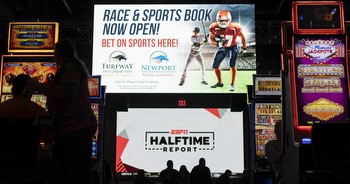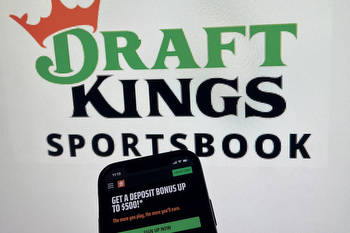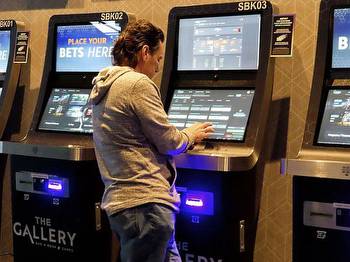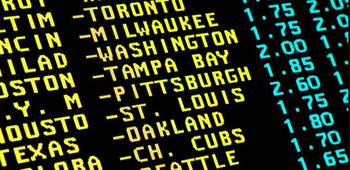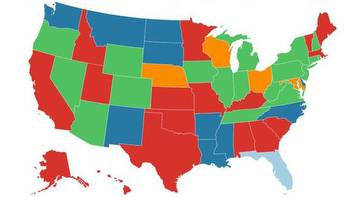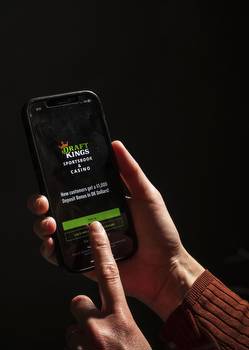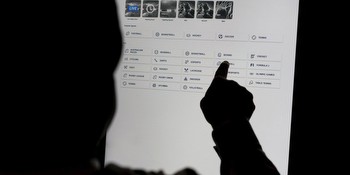States Are Scoring Millions in Tax Revenue from Sports Betting
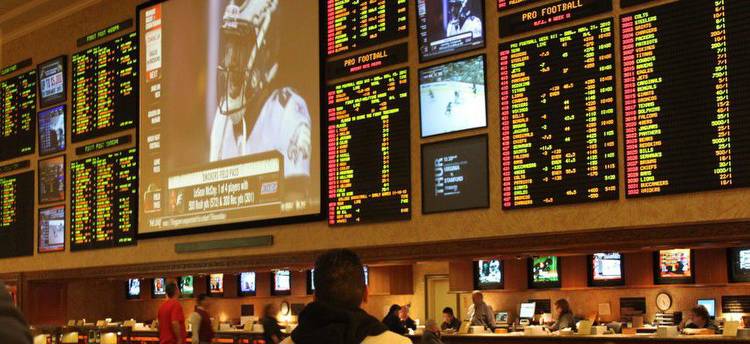
Connecting state and local government leaders
|
Ahead of this weekend’s Super Bowl, a Route Fifty analysis shows the states where income from sports gambling was the highest.
A record 50.4 million adults in the U.S.—roughly 20% of the population—are expected to bet $16 billion on the Super Bowl this Sunday, according to an annual survey from the American Gaming Association.
The Super Bowl is increasingly a big deal for states, and that’s because many of them stand to make money off of it.
In 2022, 27 states brought in a combined $1.5 billion from sports betting. Three of those states raked in more than $100 million in revenue: New York, Pennsylvania and Illinois.
New York, which launched mobile sports betting in January 2022, has become the largest sports betting market in the country. The state made nearly $700 million in taxes last year, despite predictions that a 51% minimum tax would hinder sports betting in the Empire State. (New York’s total estimated budget revenue for the 2022-23 fiscal year is set to be about $210 billion.) Bettors in the state wagered a total of $16.7 billion through mobile apps during the market’s first year in operation, according to the New York State Gaming Commission.
Second to New York in tax revenue was Pennsylvania, which also has a high tax rate of 36%. Illinois, which saw the third highest amount, taxes at 15%, and New Jersey, which just missed the $100 million mark, taxes between 8.5% and 13% depending on the source.
State of Play
Since the U.S. Supreme Court overturned a near total prohibition on sports betting in 2018, 36 states and Washington, D.C., have legalized it—although it is still not operational in three states (Florida, Maine and Nebraska). Six of these states do not have state-approved gambling but have worked with Native American governments to authorize it at tribal casinos.
Both Massachusetts and Ohio launched sports betting this year. It is fully underway in Ohio, while Massachusetts is rolling it out more slowly. Retail sports betting was effective Jan. 31 at each of the state’s three full-service casinos. Mobile sports betting is targeted to go into effect in March.
Several states are currently debating legislation that would potentially legalize it, including Georgia, Kentucky, Minnesota, North Dakota and Texas. Sports betting is already allowed on tribal lands in North Dakota, but the legislation up for consideration would ask voters whether to amend the state’s constitution to allow it.
The bills in Minnesota and Kentucky face uphill battles, according to Legal Sports Report, an industry letter.
Advocates for legalizing online sports betting in Texas debuted new bills on Monday that take a narrower approach than previous proposals in 2021. The legislation would ask voters to decide in a November election whether they want to legalize mobile sports betting. The major difference from the 2021 bills is that the latest legislation does not legalize in-person sports betting.
Understanding the Data
It’s important to understand that this picture of state sports betting revenues is not apples to apples as laws vary widely state to state, as do tax rates. One may only allow in-person betting on sports, while the other may offer online or mobile sports betting. A state may allow you to wager on any sport, but the one next door may prohibit betting on college sports.
So in the states that allow mobile betting, the tax revenues are typically higher. In Delaware, for instance, wagering on sports for the most part only takes place at three state casinos as there is no mobile betting in the state. Meanwhile, in neighboring New Jersey, mobile sports betting is allowed. Legal Sports Report estimates that about 80% of the amount wagered on sports is generated through sportsbook apps and websites.
Then there are tax rates. Nevada, which has had legal wagering for decades, saw $8.7 billion wagered on sports in 2022. But it has one of the lowest tax rates in the country at 6.75%, and therefore, sees far less revenues than New York, Pennsylvania, Illinois and New Jersey.
And not every state actually taxes betting revenue. Take Rhode Island. The state actually runs sports betting through a pair of casinos and gets a share of revenue in place of taxing it. Some states, such as Oregon, run it through their lotteries.











